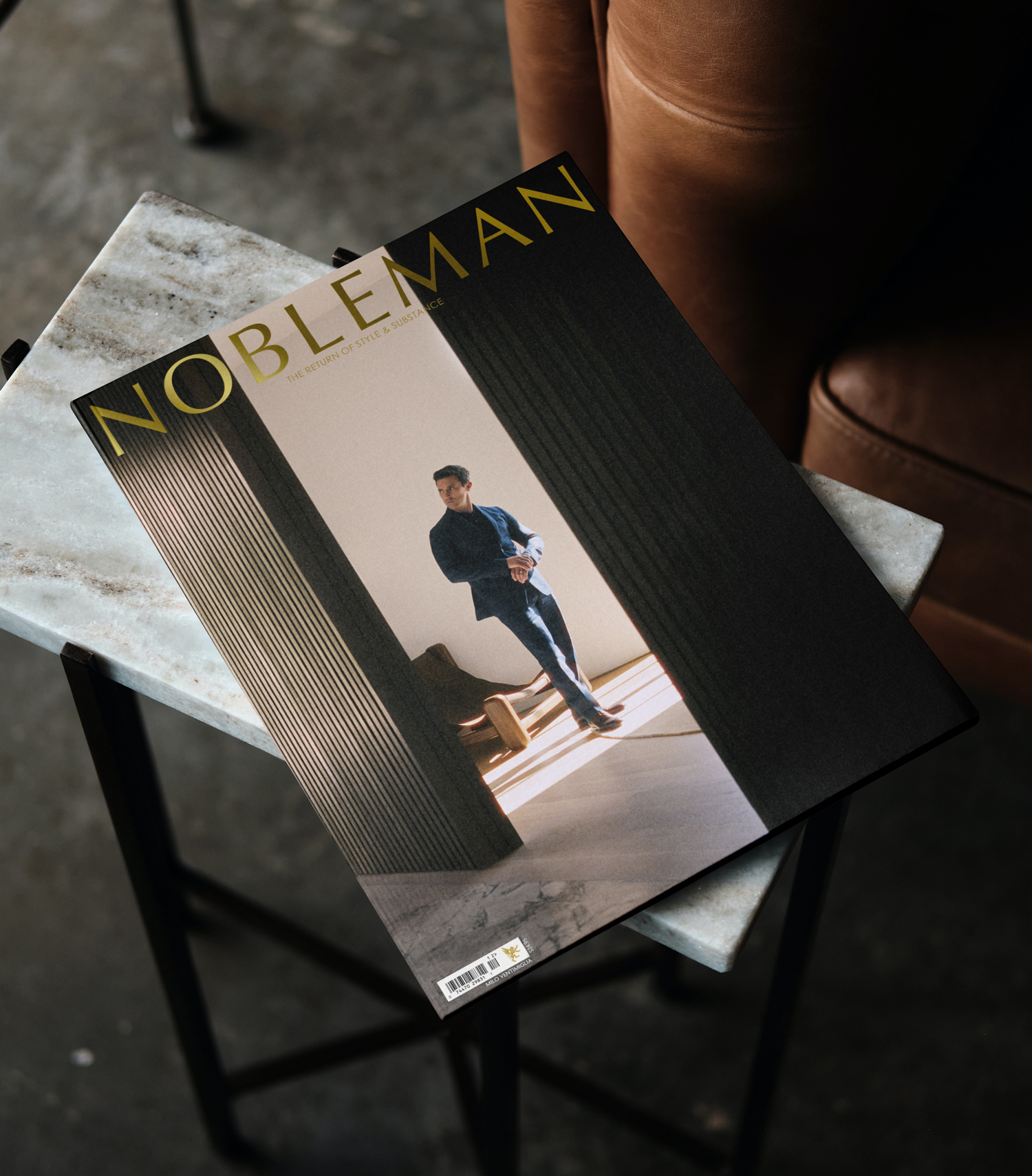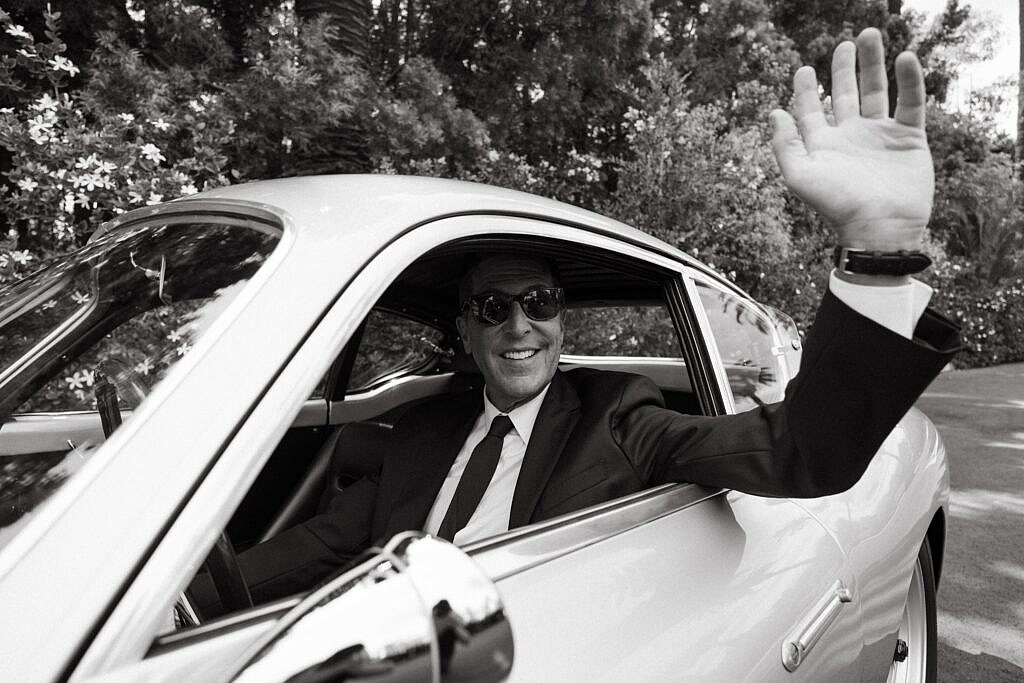
Some names have a way of lingering in your memory, like a catchy tune you forgot you knew. For me, that name was Spike Feresten. In high school, I used to stay up late to catch a short-lived, wildly underrated FOX show called Talkshow with Spike Feresten. At a time when late-night TV was playing it safe, Feresten and his crew were tossing the rulebook out the window. Their fearless comedy had just the right mix of absurdity and sincerity to hook a young insomniac like me.
Years later, that same name came crashing back into my consciousness like a wave. Spike Feresten. The guy behind the wheel of one of the funniest episodes in sitcom history (Soup Nazi, anyone?). A veteran of Letterman, SNL, The Simpsons, and Seinfeld. A writer who helped shape the very sound of comedy in the ’90s and then somehow pivoted into the gearhead culture with just as much flair.
We met at a tucked-away car club in Los Angeles, a sort of sacred garage where every gleaming piece of vintage metal tells a story. Spike rolled in behind the wheel of not one but two classics, each polished to perfection and full of personality. He walked me through them like a proud parent, rattling off quirks and histories with a mix of reverence and wit. Then we sat down to talk fatherhood, Ferrari fantasies, and the simple joy of making people laugh.
Feresten isn’t just funny. He’s thoughtful, focused, and the kind of person who carries his passions proudly. Our interview was less a formal conversation and more like a spirited Sunday drive with a friend who knows the road better than most.
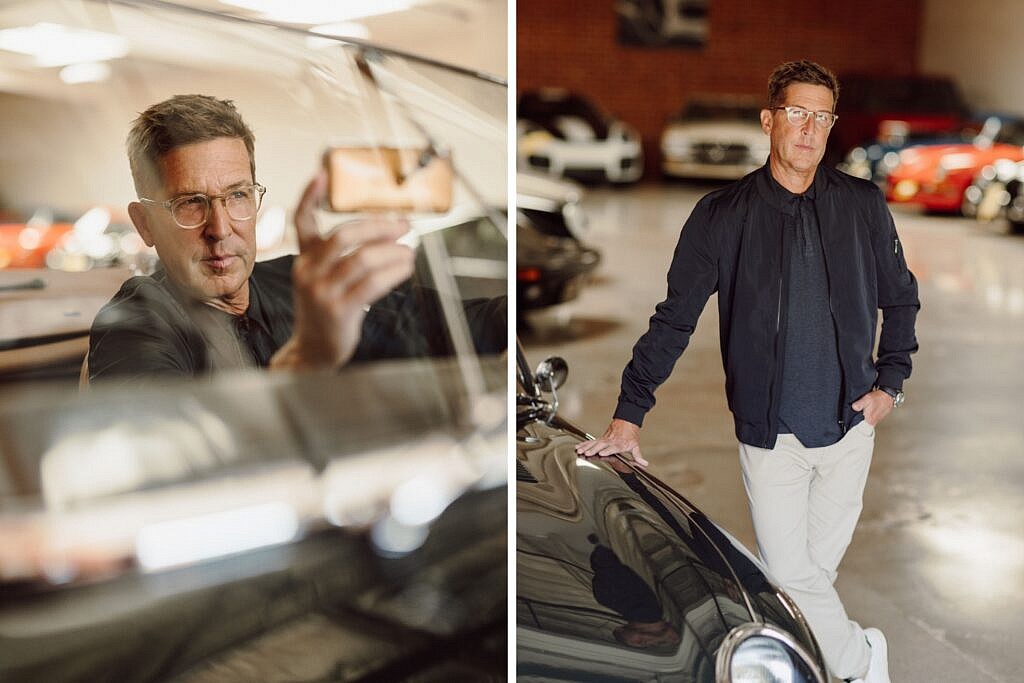
What surprised you most about becoming a dad?
It felt so natural. I always wondered what kind of guy I’d be in the delivery room. Would I be the guy coaching breathing, passing out in the hallway, or down with a catcher’s mitt? But once I was there, it all made sense. Fatherhood didn’t hit me like a truck. It showed up gently and felt right.
What’s surprising is how much it makes you look backward while moving forward. You’re constantly thinking, How do I give my kids what I didn’t have? You’re working with that ticking clock of 18 years. It’s like a project that never ends. I’m always learning, evolving, and trying to get it right. And honestly, when I hear friends say their grown kids want to move back in, I think, That’s success. When I left home, I was gone. So if they want to come back? I must be doing something right.
How do you juggle fatherhood with your entertainment career?
Balance is a myth. You’re either gone all the time or you’re home all the time developing. One week it’s “Where’s Dad?” The next it is “Why is Dad always here?”
What helps is bringing them into my world. When I take my kids to the set and someone calls me “sir,” their faces are priceless. It keeps me grounded. At the end of the day, I prioritize my family over everything. You just show up when and where you can, and mean it when you do.
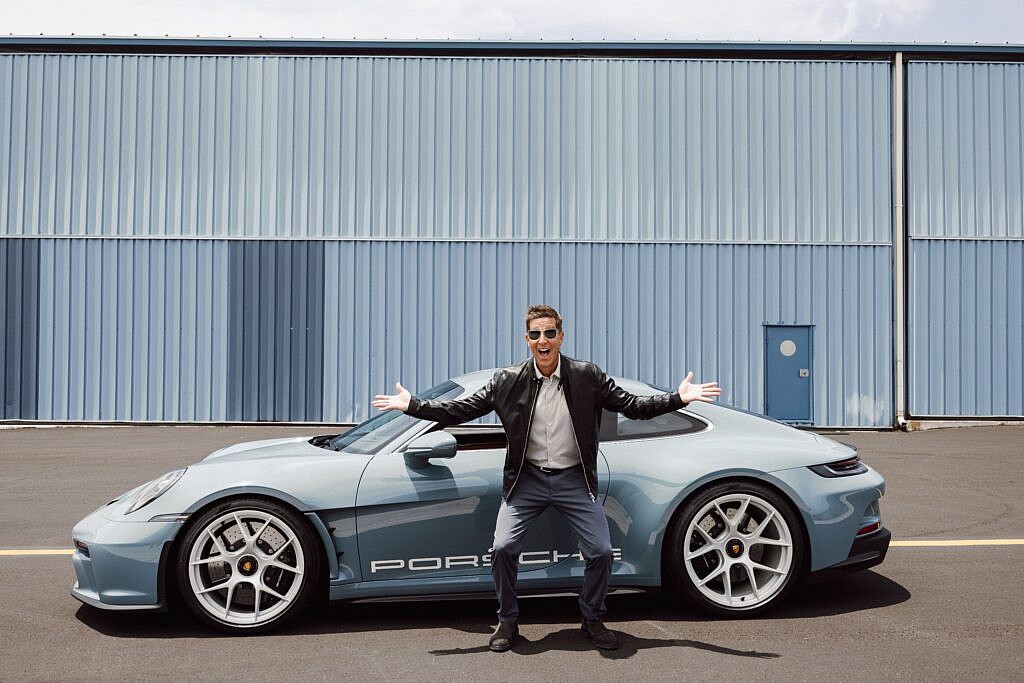
Was there ever a sketch or joke that never made it to air that you still think about?
Oh, so many. Writers call it “killing your babies.” You’ll have this one scene or line you love, and nine times out of ten, it’s the first thing to go. You get used to it, but the great ideas have a way of fighting their way back in.
On Seinfeld, I pitched the “little kicks” storyline (Elaine dancing) for an entire season and got shut down every time. Nobody could see it. Then, next season, I quietly brought it back. It finally stuck. Good ideas are like that. They don’t go quietly.
When did you realize you’d made it?
Writing for Letterman was the dream. That’s all I ever wanted. I was young, obsessed, and thought that if I could just get in that room, I’d be set. I sent in my packet and heard nothing. Days went by. Then I walked down the street into a church. I’m not even religious. But I made a deal with God. I said, If you get me this job, I’ll… whatever. I went back to my day job, and that same afternoon, the call came: David Letterman wants to hire you. I never stepped foot in that church again. I don’t think I’ve even been back to that block.
What was your “gateway car”?
A Maserati Bi-Turbo. Total junk. But I didn’t care. I worked all week just to spend my paycheck fixing that car over the weekend. It had a Cartier clock, and to me, that was the pinnacle of exotic driving.
Then Letterman told me, “You’re a Porsche 911 guy.” I was insulted. Growing up in Massachusetts, the Porsche guys in movies were all country club jerks. But Dave insisted. He let me drive one of his 911s, and he was right. I bought a ’74 Sepia Brown 911 the next day. Still beat-up, but this time I was in love.
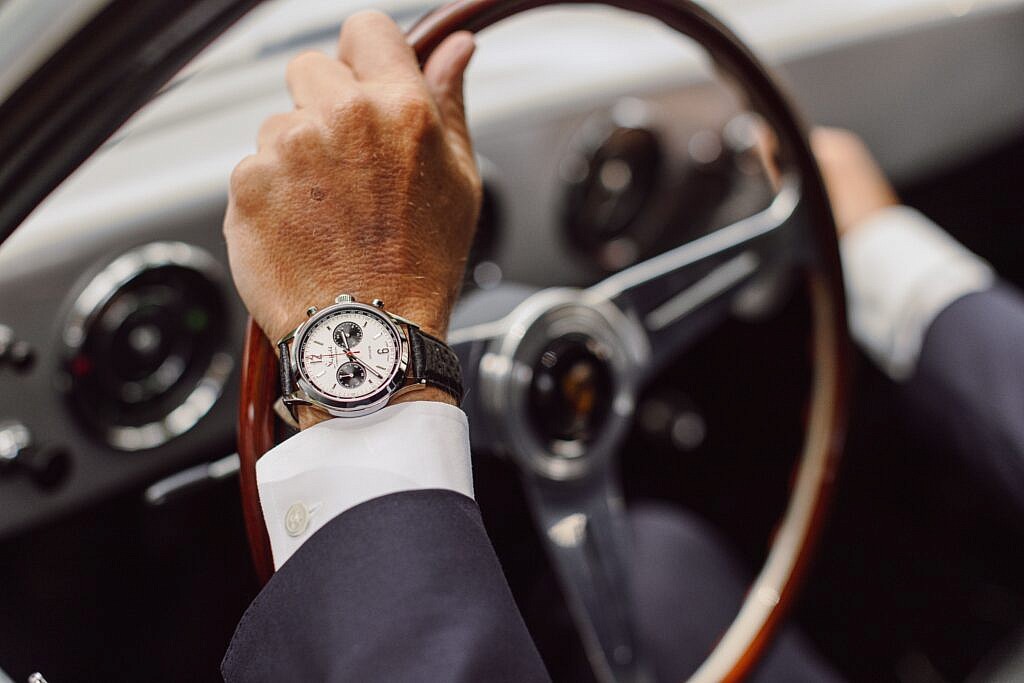
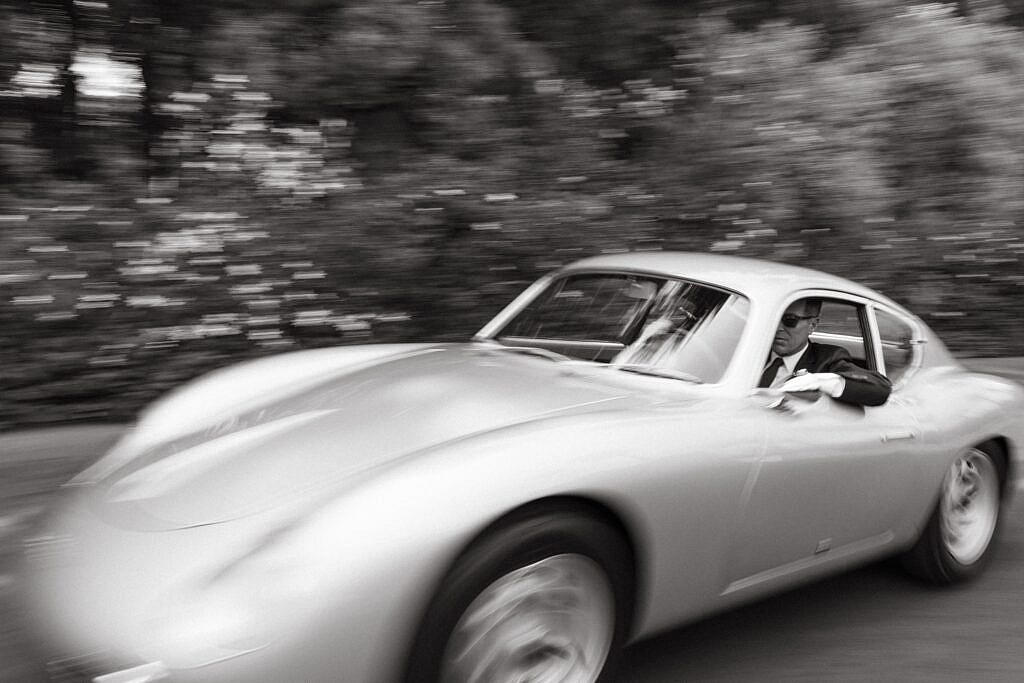
What are you driving the most right now?
A Porsche 911 S/T. It’s the best modern 911 I’ve ever driven. An incredible machine. But I mix it up all the time.
You’ve driven hundreds of cars. Which one surprised you most?
All the time. I drive things every month that blow my mind. And there are still cars I dream about owning, like a Ferrari 250 Short Wheelbase.
That’s the heart of it. The automotive hobby is aspirational. You’re always looking, dreaming, pining for the next experience.
Even recently, I drive two cars: a BMW M5 Touring, which is a total dad sled, and a 1971 Series 2A Land Rover, which drives like a farm tractor. And I’ll have just as much fun in both. I’ll have the experience, then hop on my podcast and talk about it. That’s the joy.
How did your podcast, Spike’s Car Radio, evolve into what it is now?
It started with a group of friends. Drivers, not collectors. Just going out for drives on the PCH. That was our golf. We’d stop for coffee, talk cars, and tell stories.
People would literally lean in at the next table to listen. So I thought, why not give them a seat at the table? We started putting mics in front of us, and it clicked. The goal was never to sound like a traditional podcast. It was to capture what it feels like to love cars and to share that vibe with whoever wants to listen.

Walk us through the cars you brought in for our photo shoot today?
Right now, the crown jewel is the Porsche 911 S/T. It’s a truly special car. Porsche only built 1,963 of them to commemorate the 60th anniversary of the 911. They’re incredibly rare and primarily offered to members of what’s known as the “918 Club,” which is essentially Porsche’s VIP list of customers who bought the 918 Spyder. Anytime a new special model comes along, these buyers get first dibs.
Now, my podcast co-host and I are not 918 guys. Far from it. But we’ve been building a relationship with Porsche Clearwater down in Florida, and somehow, against all odds, they allowed me to buy one of these cars. It’s probably the greatest gift I’ve ever been given, to be honest. This car isn’t just a thrill to drive. It’s a piece of history.
Then there’s the Zagato 356 Coupe, which is just as rare but in a completely different way. While researching and digitizing old car designs, Zagato, an Italian design house. Unearthed a sketch from 1959. In 2015, they reached out to Porsche and got permission to build it. Just nine of these coupes were made. Nine.
At first, I said no. It seemed unreal. But I kept looking at the pictures, and something about them just haunted me. I was literally on a flight to the Pebble Beach Concours, flipping through photos, and I thought, I have to get this car. As the plane was landing, I texted the Zagato rep and somehow, I locked in an allocation.
It’s built on a classic 356 chassis, but it’s light, sculptural, and unique. There are only three in the United States, and every time I look at it, I can’t believe I own one.
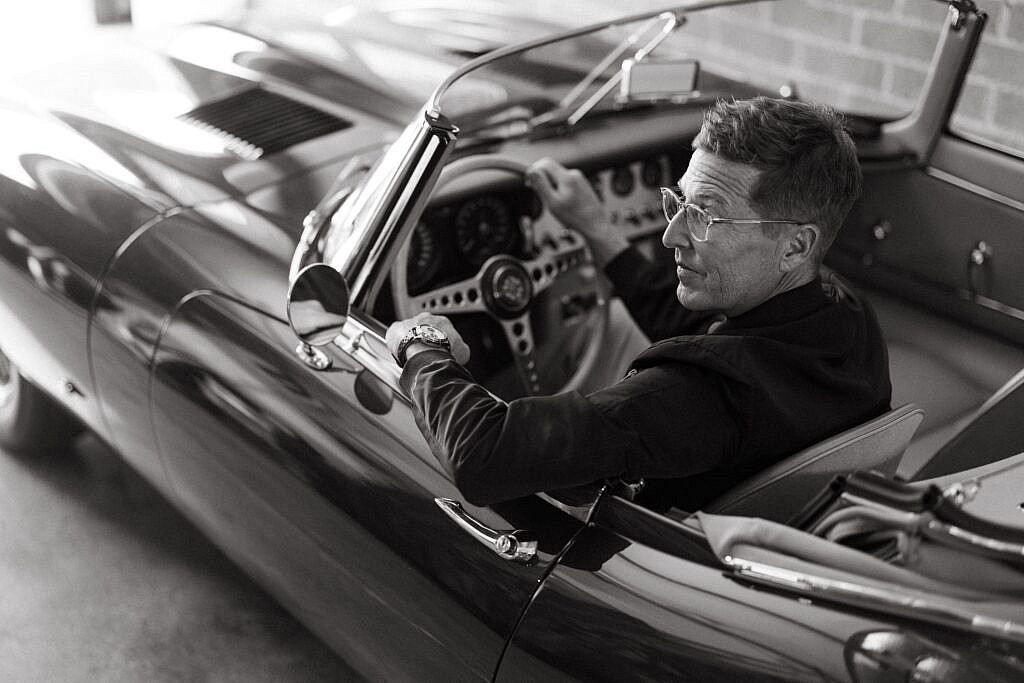
Words by Thomas Burleson
Photos by Rod Foster

